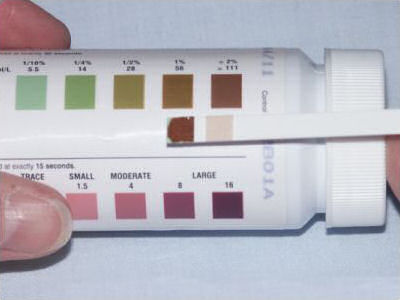 Washington, Apr 5 : A researcher from Missouri University has devised a method of detecting cancer with the help of urine samples.
Washington, Apr 5 : A researcher from Missouri University has devised a method of detecting cancer with the help of urine samples.
Dr. Yinfa Ma has developed a method for pre-cancer screening and hopes to be able to predict types of cancer as well as severity.
"Cancer is the second-highest cause of death among all diseases," said Ma, a Curators' Teaching Professor of chemistry at Missouri University of Science and Technology.
"Early diagnosis of cancer is crucial, but not many people want to go to the hospital to undergo costly, invasive cancer screening," he added.